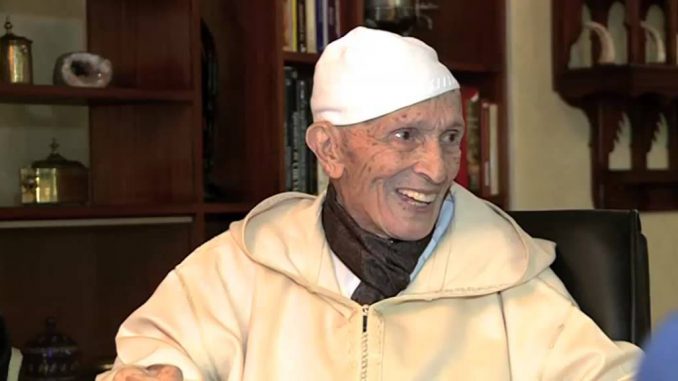
Mahjoubi Aherdane, who died Sunday morning at the age of about 100 years due to the disease (he was suffering from both Alzheimer’s and Parkinson’s), is an emblematic political figure in Morocco, and one of the great defenders of the Amazigh cause. He was loved by people despite his very controversial positions.
Aherdane was born in 1921 in the village of Oulmès in the Middle Atlas (1924 according to other sources) and moved to Azrou for his college studies. He then joined the military school of Meknes from which he graduated with honor. He worked in the ranks of the French army, then joined the resistance and the national movement.
Aherdane witnessed the ascension to the throne of three kings, namely between Sultan Mohammed V and His Majesty King Mohammed VI. He also served in eight governments and held several ministerial positions, most of which were held during the time of the late Hassan II. He was Minister of Defense, then Minister of Agriculture and Agrarian Reform, then Minister of State in charge of Posts and Telecommunications. He was also Wali of Rabat, but his relationship with the late King was affected by some controversial opinions he expressed, particularly regarding the Amazigh cause and the Sahara issue.
Aherdane’s name is linked to the Popular Movement Party, of which he was one of the founders after independence, alongside Dr. Abdelkrim El Khatib. He was its secretary general since its second conference, before he was dismissed by the King at an exceptional conference, and he was replaced by Mohand Laenser. Aherdane then founded a new party which he called “the national popular movement”, but he united again with the first party following a royal pardon. Aherdane became president of the party and Laenser its general secretary.
Aherdane was the first politician to visit Israel, sent by the late Hassan II to the Moroccan Jews on the occasion of the celebration of Lalla Mimouna. He then visited Israel twice more, generating a wave of criticism.
In addition to politics, Aherdane was a writer, poet, and painter. He exhibited his paintings in many international exhibitions. He wrote his memoirs entitled “Zayegh”.

Be the first to comment